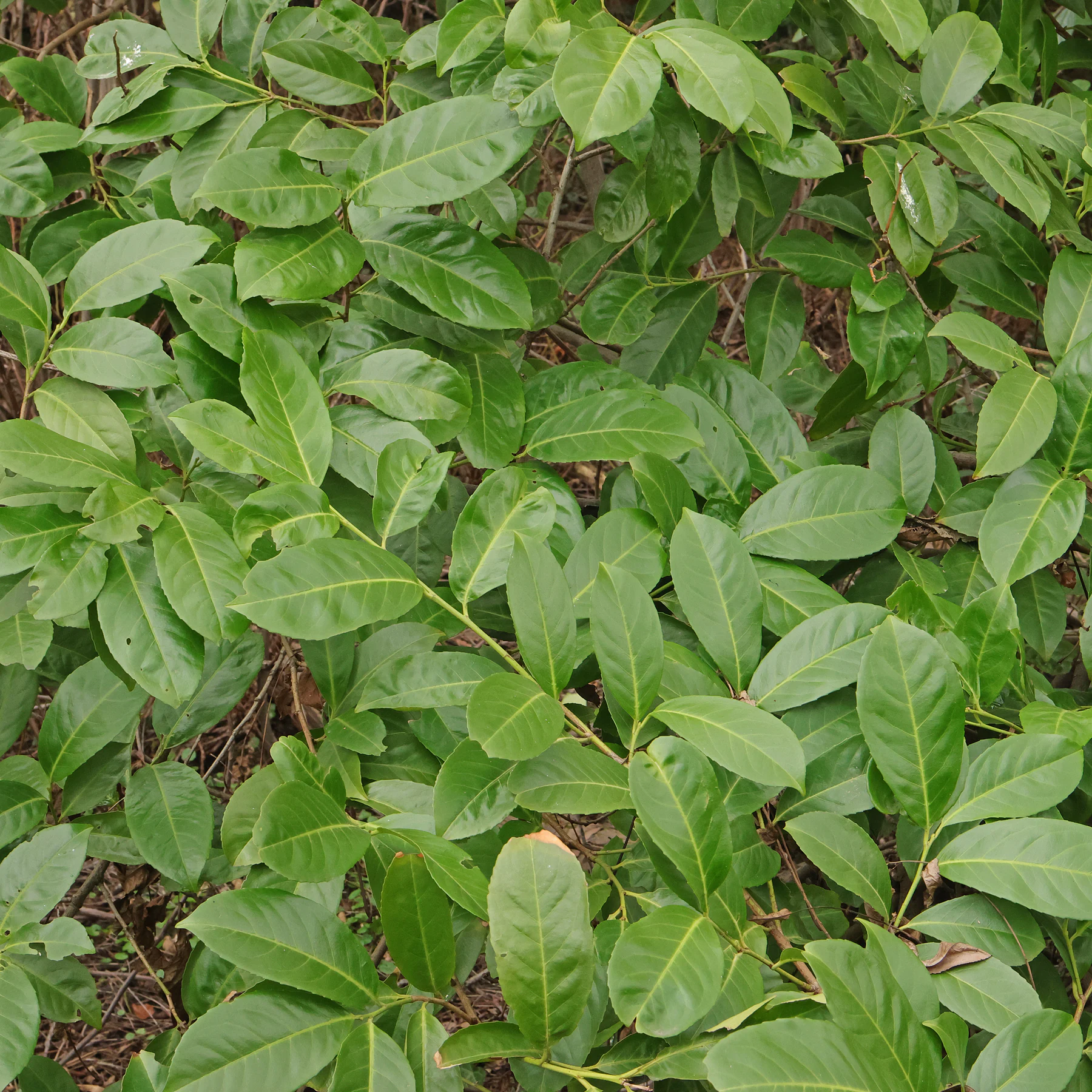Leaf type: Ovate, linear (broad), lanceolate
Phyllotaxis: Alternate
Colour: Green
Life cycle: Perennial, evergreen
Leaf (upper side)




Habitus & biology

Prunus laurocerasus is an evergreen tree or shrub and can reach a height of up to six metres. Several cultivars are available, which can differ in the size and shape of the leaves. Some grow flat.
All parts of the plant are poisonous.

Distribution & habitates
The natural distribution area is in south-east Europe, west Asia and north Africa (source). As an ornamental plant, Prunus laurocerasus has also found its way into other regions and has become established there.

Due to its robustness and because it is considered easy to care for, the cherry laurel is often planted as a hedge and in parks and gardens. Unfortunately, it does not stay there, so it can also be found growing wild in forests. Where it can displace the native species.
Botany
The cherry laurel, English laurel or common laurel (Prunus laurocerasus), belongs to the rose family (Rosaceae) and is related to cherries. However, it is not related to the laurel (Laurus nobilis), which looks similar at first glance.

 Potentilla reptans (creeping cinquefoil)
Potentilla reptans (creeping cinquefoil)  Waldsteinia ternata
Waldsteinia ternata  Prunus armeniaca
Prunus armeniaca  Prunus domestica ssp. syriaca
Prunus domestica ssp. syriaca  Mespilus germanica
Mespilus germanica  Malus domestica
Malus domestica  Dasiphora fruticosa
Dasiphora fruticosa  Rhodotypos scandens
Rhodotypos scandens  Waldsteinia geoides
Waldsteinia geoides  Pyrus communis
Pyrus communis  Alchemilla mollis
Alchemilla mollis  Sanguisorba minor (salad burnet)
Sanguisorba minor (salad burnet)  Kerria japonica
Kerria japonica  Argentina anserina (silverweed)
Argentina anserina (silverweed)  Prunus dulcis
Prunus dulcis  Spiraea japonica
Spiraea japonica  Cotoneaster multiflorus (many-flowered cotoneaster)
Cotoneaster multiflorus (many-flowered cotoneaster)  Prunus domestica ssp. domestica
Prunus domestica ssp. domestica  Prunus avium
Prunus avium  Prunus persica
Prunus persica